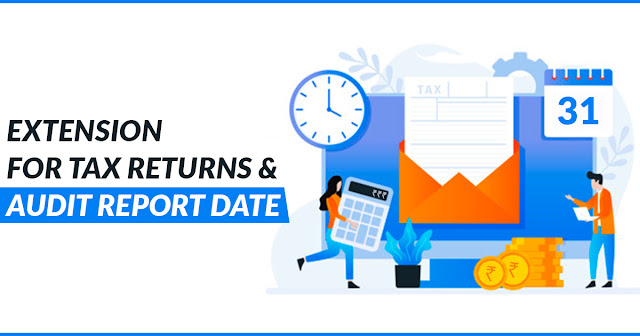The date of filing the tax audit report and Income tax return for the financial assessment year 2020-21 has been extended by CBDT. The amendment in dates is being listed in the table below.
| Compliance Nature | Financial Year | Actual Due Date | Last Extension of Due Date | Current Due Date |
|---|---|---|---|---|
| Belated Income Tax Return | 2018-19 | 31st March 2020 | 30th September 2020 | 30th November 2020 |
| Revised Income Tax Return | 2018-19 | 31st March 2020 | 30th September 2020 | 30th November 2020 |
| Return of Income (In case of TP Audit) | 2019-20 | 30th November 2020 | - | 31st January 2021 |
| Return of Income (Company Assessee) | 2019-20 | 31st October 2020 | 30th November 2020 | 31st January 2021 |
| Income Tax Return Where Audit is Compulsory | 2019-20 | 31st October 2020 | 30th November 2020 | 31st January 2021 |
| Return of Income (In case of a Partner in a firm whose audit is mandatory) | 2019-20 | 31st October 2020 | 30th November 2020 | 31st January 2021 |
| Income Tax Return (In Any other case) | 2019-20 | 31st July 2020 | 30th November 2020 | 31st December 2020 |
| Filing of Tax Audit Report And All Other Reports | 2019-20 | 30th September 2020 | 30th November 2020 | 31st December 2020 |
Read Also: Income Tax Return Filing Due Dates for FY 2019-20 (Last Date)
For the assessment year 2020-21, the last date for furnishing the Income-tax return is prolonged, however, there is no relief given for the interest levied beneath section 234A if the liability for the tax is more than Rs 1 lakh. Hence if the tax liabilities for an assessee in self-assessment are more than Rs 1 lakh he should have to pay the interest in section 234A with the last date. Which is 31-07-2020 or 31-10-2020. Under the Act 234A, the interest will not be payable if the liability is less than Rs 1 lakh along with the file income tax return furnished within the last date in the subject of self-assessment.


Comments
Post a Comment